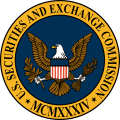
SILICON VALLEY BANK UPDATES
We’re sure many of you have seen headlines about the FDIC, Silicon Valley Bank (SVB), and Signature Bank (SB) over the past few days. We thought we’d quickly cover the highlights and how it all impacts you and your family.
What happened? Last Friday, Silicon Valley Bank (SVB) in California was put into receivership with the FDIC. In the 24 hours leading up to that, SVB saw over $40 billion withdrawn from accounts by its customers. This is an old fashioned “run on the bank.” They were not able to keep up with that massive level of withdrawals. [BF1] Silicon Valley Bank was unique in that they were the “go to” bank for tech companies and start-ups in Silicon Valley, especially those funded by Venture Capital.
Over the weekend it was also announced that Signature Bank in New York was taken over by the FDIC. Like SVB’s concentration, Signature Bank had a customer base in the crypto-currency related start-up world.
Sunday afternoon the FDIC, Department of the Treasury, and Federal Reserve announced that deposit holders of Silicon Valley Bank and Signature Bank would get all of their money back as early as today. This action was decisive and swift. It was also more favorable to deposit holders than many feared. The stock and bond investors of these two banks will like to lose the value of their investments in the banks.
If you’d like to read a deep dive on the SVB situation, Marc Rubenstein wrote a great summary called The Demise of Silicon Valley Bank – click here.
Are my bank deposits safe? Generally, your first $250,000 of deposits ($500,000 for some joint accounts) at most US banks are insured by the FDIC. Here is a link to more info from the FDIC. Some credit unions have a different type of insurance. Actions over the weekend from the FDIC were very supportive to bank deposit holders. However, if you have more than $250,000 (or $500k joint) in your bank account, it’s a good time to review your cash/investment strategy. There are many alternatives to holding large cash balances in a single bank. Those options include other banks, buying additional bank insurance, money market mutual funds, CDs, US Treasury Bonds, etc. Each has their own risk/reward. Our team can help you review your cash strategy this week. Call or email your Primary Advisor.
How are broader markets reacting? The US stock market is positive for the day as we write this note. Support from the FDIC over the weekend calmed markets. Our client portfolios have minimal investments in Silicon Valley Bank and Signature Bank stocks through a few mutual funds/ETFs (think 0.001% of an account). Direct positions in these two banks were/are not material to our clients’ investments.
Bank stocks in general have decreased in price over the last week. There have been wide fluctuations in the share prices of Huntington, Comerica, Fifth Third, PNC, Wells Fargo, Truist, etc. There is a risk that systemic issues arise, and other banks have problems. We feel the bank regulators have a close eye on these issues. Our hunch is that there are some “baby with the bathwater” stocks that will emerge as net beneficiaries of the current volatility. We see some of our managers nibbling at some strong banks trading at big discounts.
Markets give us frequent reminders of why our diversification is so important. 2021 brought massive price increases in venture capital, tech start-ups, high growth companies and crypto currencies. We largely avoided those areas with your investments. 2022 brought huge declines in those types of investments. In 2021 Zoom was briefly more valuable than Exxon Mobile. In 2022, that reversed to a more rational situation. The bank failures above are aftershocks of the markets correcting from the excesses of 2020/2021.
Mr. JP Morgan is widely thought to have said “In bear markets, money returns to its rightful owners.” Whether apocryphal or not, that statement rings true to us. Investing profits go to the patient and long-term investor who has a plan and sticks to it. That describes each of you, and our strategy will get us through this ongoing bear market.
A note on Schwab…
We’ve gotten some good questions from those of you that are Charles Schwab customers. Charles Schwab is not a bank, though they own one as one of their many lines of business. Our team also have personal Schwab accounts through our 401(k) plan. You are not investing in Schwab stock by being their customer. Your investments are held in your name at their broker/dealer, separate from the assets of Schwab Bank.
Schwab Bank is very consumer driven, so over 80% of their assets are FDIC insured. This is the exact opposite of SVB’s focus on corporate accounts. Schwab remains the largest custodian of assets from independent advisory firms like us and are a very well diversified business. Read a note from Charles Schwab himself here.
Now for some good news. After a challenging year in 2022, bonds have returned to providing income and source of diversification from stocks. We keep many years of income needs in cash and bonds for clients who rely on their portfolios for income needs. Short-term stock market fluctuations turn the stomach but don’t impact our clients’ long-term financial plans.
There may be a silver lining in this situation. The US economy has been experiencing inflation. This caused the Federal Reserve to increase interest rates to cool down the economy. Over the last few days, markets have been pricing in a less aggressive Federal Reserve. Perhaps “the Fed” will see some progress on cooling the economy to combat inflation. This could usher in the pause in interest rate hikes that the markets have been hoping for.


